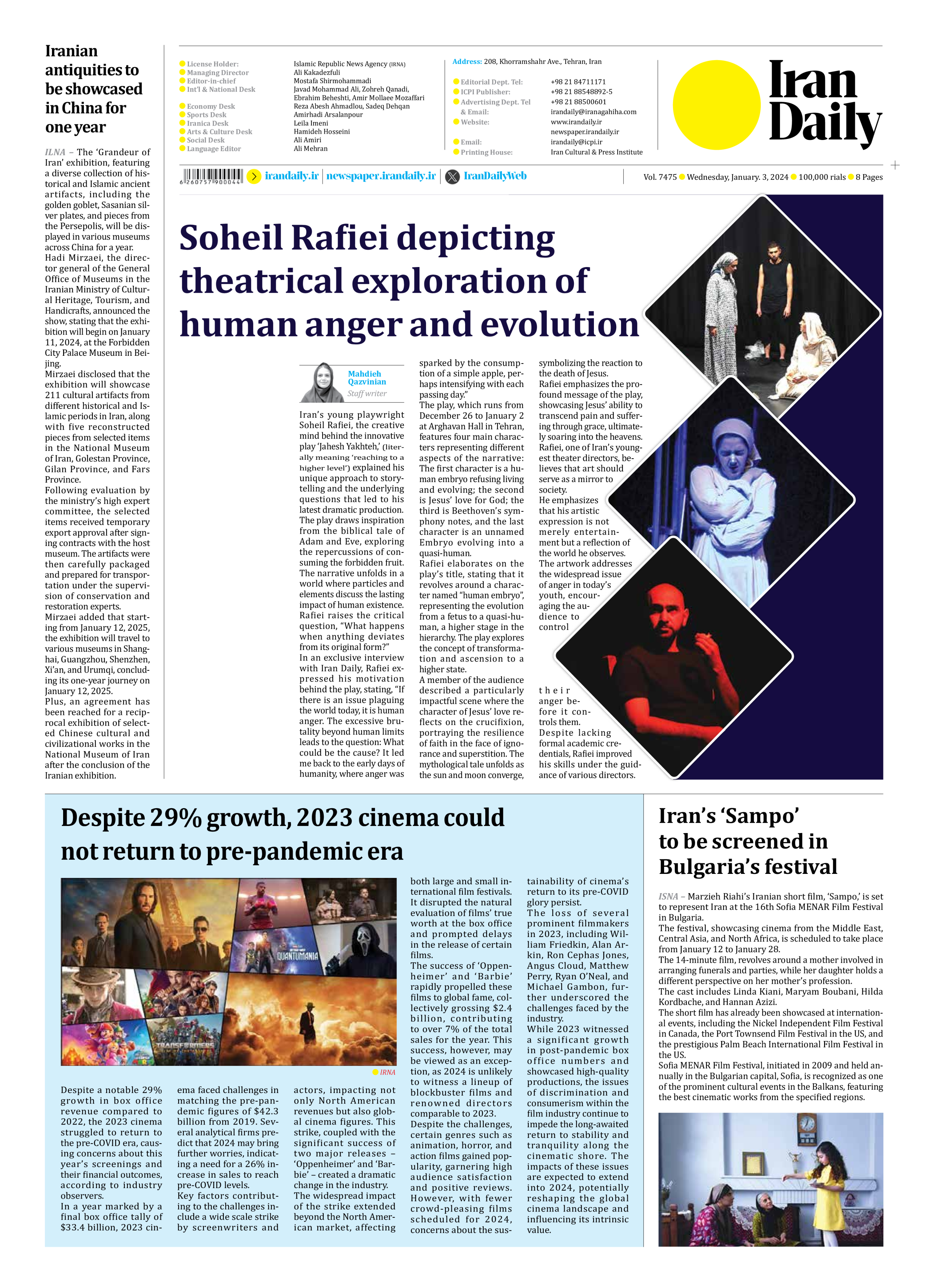
Soheil Rafiei depicting theatrical exploration of human anger and evolution
Mahdieh Qazvinian
Staff writer
Iran’s young playwright Soheil Rafiei, the creative mind behind the innovative play ‘Jahesh Yakhteh,’ (literally meaning ‘reaching to a higher level’) explained his unique approach to storytelling and the underlying questions that led to his latest dramatic production.
The play draws inspiration from the biblical tale of Adam and Eve, exploring the repercussions of consuming the forbidden fruit. The narrative unfolds in a world where particles and elements discuss the lasting impact of human existence.
Rafiei raises the critical question, “What happens when anything deviates from its original form?”
In an exclusive interview with Iran Daily, Rafiei expressed his motivation behind the play, stating, “If there is an issue plaguing the world today, it is human anger. The excessive brutality beyond human limits leads to the question: What could be the cause? It led me back to the early days of humanity, where anger was sparked by the consumption of a simple apple, perhaps intensifying with each passing day.”
The play, which runs from December 26 to January 2 at Arghavan Hall in Tehran, features four main characters representing different aspects of the narrative: The first character is a human embryo refusing living and evolving; the second is Jesus’ love for God; the third is Beethoven’s symphony notes, and the last character is an unnamed Embryo evolving into a quasi-human.
Rafiei elaborates on the play’s title, stating that it revolves around a character named “human embryo”, representing the evolution from a fetus to a quasi-human, a higher stage in the hierarchy. The play explores the concept of transformation and ascension to a higher state.
A member of the audience described a particularly impactful scene where the character of Jesus’ love reflects on the crucifixion, portraying the resilience of faith in the face of ignorance and superstition. The mythological tale unfolds as the sun and moon converge, symbolizing the reaction to the death of Jesus.
Rafiei emphasizes the profound message of the play, showcasing Jesus’ ability to transcend pain and suffering through grace, ultimately soaring into the heavens. Rafiei, one of Iran’s youngest theater directors, believes that art should serve as a mirror to society.
He emphasizes that his artistic expression is not merely entertainment but a reflection of the world he observes.
The artwork addresses the widespread issue of anger in today’s youth, encouraging the audience to control their anger before it controls them.
Despite lacking formal academic credentials, Rafiei improved his skills under the guidance of various directors.







